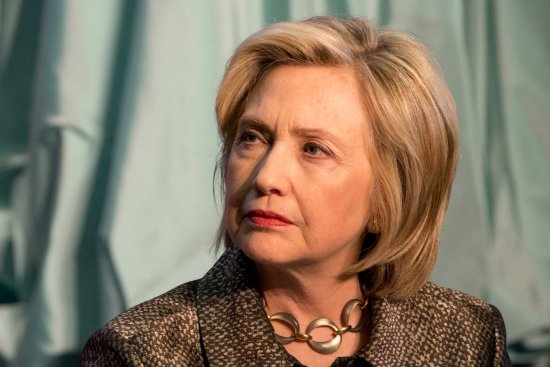
Former Secretary of State Hillary Clinton will make the most substantive foray into public policy of her weeks-old presidential campaign Wednesday to address the ongoing tumult in Baltimore and the years-long issues of rising distrust between police and the communities they serve.
Delivering the David N. Dinkins Leadership and Public Policy Forum at Columbia University, Clinton will call on the nation to “end the era of mass incarceration,” a Clinton aide said. Clinton is set to discuss her vision for criminal justice reform, including policy proposals to address nonviolent drug offenders and those with mental health issues.
“We need a true national debate about how to reduce our current prison population while keeping our communities safe,” Clinton wrote in an essay published this week by the Brennan Center for Justice at New York University’s School of Law. “We should work together to keep more nonviolent drug offenders out of prison and to ensure that we don’t create another ‘incarceration generation.’”
Clinton will call for every police department in the nation to deploy body cameras to record officer interactions with their communities. Last year’s shooting of Michael Brown in Ferguson reignited a national debate about body cameras, but many jurisdictions have been slow to adopt them, citing cost or ideological concerns.
“She will also discuss the hard truth and fundamental unfairness in our country that today African American men are far more likely to be stopped and searched by police, charged with crimes and sentenced to longer prison terms,” a Clinton aide said.
In her first public comments on the Baltimore rioting, Clinton told donors in midtown Manhattan Tuesday that, “Baltimore is burning.”
“It is heartbreaking,” Clinton added. “The tragic death of another young African-American man. The injuries to police officers. The burning of peoples’ homes and small businesses. We have to restore order and security. But then we have to take a hard look as to what we need to do to reform our system.”
Clinton’s focus on criminal justice reform as her initial policy roll-out reflects a stark shift for the former New York Senator and First Lady, who for years championed tough-on-crime proposals like “three strikes” laws and her husband’s crime bill which toughened federal sentencing guidelines. But Clinton’s about-face follows a nationwide — and bipartisan — rethinking of criminal justice policies.
See Every Hillary Clinton TIME Cover





























